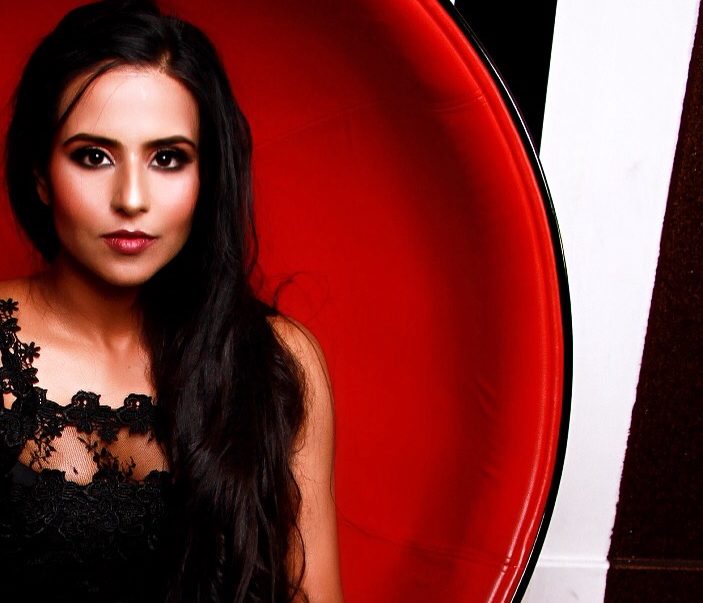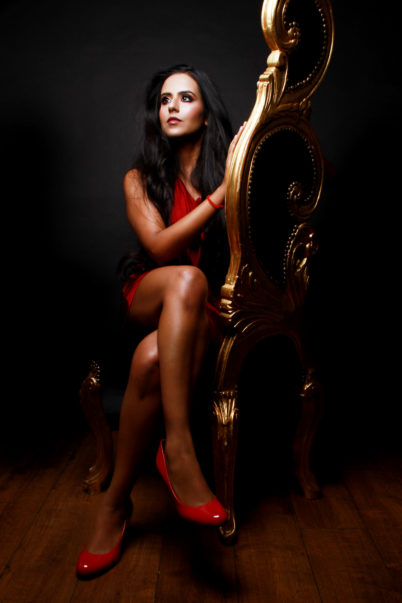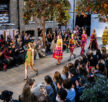

Kiruthika Rajeswaran: The right side of beauty pageants
- 2nd February 2017
- POST IN :STYLE
Since the introduction of “Miss America” in 1921, the concept and institution of beauty pageants have polarised minds and set in motion discussions on beauty standards, objectification of women, and women’s rights. On one hand, critics have raised concerns about it being little more than an excuse to leer at scantily-clad women, for promoting a European standard of beauty, and for treating its contestants as mere objects. On the other hand, contestants and organisers alike have stressed the benefits of beauty pageants: they teach discipline, they help to build confidence, and they also offer scholarships and other monetary prices.
Another merit of beauty pageants is that they – if done correctly and fairly – can actually be used as a tool to not promote but deconstruct prevailing beauty standards. By featuring women of all colours, sizes, and shapes, they can be the perfect medium to popularise and highlight different ‘types of beautiful’.
A positive and encouraging example of this is the UK Galaxy Pageant and its current Miss Wembley Galaxy, Kiruthika Rajeswaran. Thamarai recently sat down with the regional pageant winner, who will be participating in the UK wide final of the Galaxy pageant in spring 2017.
In the recent years, beauty pageants have had their share of criticisms and controversies. Oftentimes it is associated with the objectification of women, body-shaming, and measuring beauty that is merely skin-deep. Especially in our community, beauty pageants face a lot of disapproval. Partly, that’s because women aren’t supposed to reveal themselves in such a public way. But partly it’s also because women of our colour aren’t thought to be pretty or fair enough to participate in beauty contests – both by the outside world, but sadly, also by our own community.
What was it then that made you go against that way of thinking and participate at the Galaxy beauty pageant?
For me, one of the deciding factors was the fact that the Galaxy beauty pageants are very inclusive and open to different ideals of beauty. There are so many contestants from different backgrounds, ethnicities, and body types. So I felt encouraged and accepted from the very beginning.
In addition to that, by participating in the pageant, I, and my fellow contestants have been allowed to actively engage with and help their communities as part of this process. In fact, this year the Galaxy pageant is raising money for the Christie NHS Foundation, which is an internationally recognised cancer treatment centre, and so far, I have managed to raise just over a £1000 for this cause.
And talking about beauty pageants in general – although there is an element of physical beauty in any pageant, there is actually much more to it. For some girls, this is a great way to improve their confidence and get out of their comfort zone. For others, it is about challenging the stereotype of what is considered beautiful. Finally, some girls just find the experience enjoyable and they are there to have fun, and I don’t think there is anything wrong with that either!
Speaking of confidence, getting out of your comfort zone, and challenging standards of beauty – you’ve had your own share of problems with that. During one of our earlier chats, you talked about your own fight with self-confidence and “pathetically low self-esteem”, as you put it. Like many girls from our community, you were also victim to things like colourism and body-shaming, and struggled with the way you looked.
To be honest, I didn’t really experience issues with my self-esteem until my late teen years. I was lucky that I have a really supportive family and also a great childhood. So actually, it was only after I moved to London for university that I started to dislike being in my own skin – quite literally. Even as a child, I was aware that my darker skin tone wasn’t looked upon favourably, but this never really affected me too much – until I started university. You could say that was my first real experience of colourism. It was the first time to hear things like “Oh, you’re actually pretty even though you’re dark!”. A classic.
I wish I could say that all the put-downs, “jokes” and back-handed compliments didn’t bother me. That I was stronger. However, my confidence took such a big hit that I slowly started to change how I felt about myself. Those comments got to me so much that all the negative things said about me and my skin colour would overshadow all the things I was good at. Sadly, I started attaching my self-worth to something as superficial as skin colour.
You say that you wish you hadn’t let those comments and jokes bother you, wish you had been stronger. And while you might not have been as strong as you wished back then, you are now. Strong enough to accept the way you look; strong enough to be comfortable in your skin; strong enough to participate in national beauty pageants.
Over the past few years, I luckily have been able to work through my issues about the way I look. I have learned to not be put down by what people say and not let my own self-worth be defined by the colour of my skin and other people’s perception of me. But while I had learned to accept and embrace who I am, I realised how many other young girls and women are affected by this daily.
On one hand, I entered the pageant to get out of my comfort zone and try something new. I wanted to do something I had never thought of doing, something that would have been impossible for me a few years back. So for someone who, not so long ago, didn’t even want to be in family photos, I felt like this was a bold step in the right direction.
But on the other hand, I also had the hope that by participating, I could maybe do something to make others feel better about themselves. A lot of girls from our community grown up being told that, to be pretty, they have to be fair. So a lot of these days girls actually start believing exactly that. They think that they’re not pretty enough the way they are. That they are inherently, by default, not beautiful. So by participating in the pageant I wanted to try and be a role model to girls like me, who may have spent their entire lives believing they’re not beautiful.
This may sound strange, but looking back I really value the experiences I had. It somehow forced me to learn to accept myself – my looks, my body, and the colour of my skin. It might sound corny, but I learned that the only real way to be happy and content is self-acceptance, although it might be extremely difficult to achieve. But at the end of the day, how can you become anything, if you can’t even be yourself first?

When you’re not busy participating and winning beauty pageants, you actually work as the director at “simplyweight” – a global medical weight management company started by your father.
“simplyweight” being a family business, I was automatically involved with it since its very early days. Even during my uni days when I was studying BSc Economics at LSE, I would help out doing bits of work for the company. But after graduation, I got the chance to work at a great agency in Central London – a really valuable time, where I was able to have a lot of exposure to the real world of digital marketing. However, after some time I found myself missing “simplyweight” and I realised that that was where I really belonged.
Maybe it’s to do with my own struggle and experience with weight loss and weight management, but I could clearly see the difference we were making in people’s lives, and I think that was the deciding factor for me.
We see many clients who are suffering from low self-esteem, poor body image, childhood trauma and so on and so forth. So for me, personally, to be able to help those people deal with their problems, to be able to help them to permanently keep off the weight, I find that extremely satisfying and rewarding.
We have seen clients completely change their lives around in just a matter of weeks, with some developing confidence to socialise more, wear the clothes they’ve always wanted to wear, and even boost their careers with their new-found outlook towards life.
They say that the best-equipped ones to help others are those that have gone through the struggle themselves. It’s easy to stand on the sidelines and lecture people and tell them how to live their lives better. But you have experienced the struggle and gone through all of this yourself.
I completely agree with that. It definitely helps to have gone through the struggle yourself, since you can then truly put yourself in their shoes. I myself have lost quite a bit of weight since my school days. Because of my own experience with weight-loss, I then often find myself being able to relate to what our clients are going through. Weight is one of the most sensitive issues as it is, so it is important that you can trust the people helping you without feeling judged. They get enough of that already. I mean, I have been that person so I know exactly how that feels.
Be it my past experience with weight-loss and colourism, be it my participation at the pageant, or be it my work at “simplyweight” – one thing I’ve learned through all of this is that you don’t need to change yourself to fit a certain mould and be considered beautiful by others. You’re already beautiful – you’re just unable to see it right now.
It took me a long time to learn this lesson myself, but I think it’s time we learned to appreciate our positive qualities, be proud to reinforce them, and treat ourselves with kindness.






















